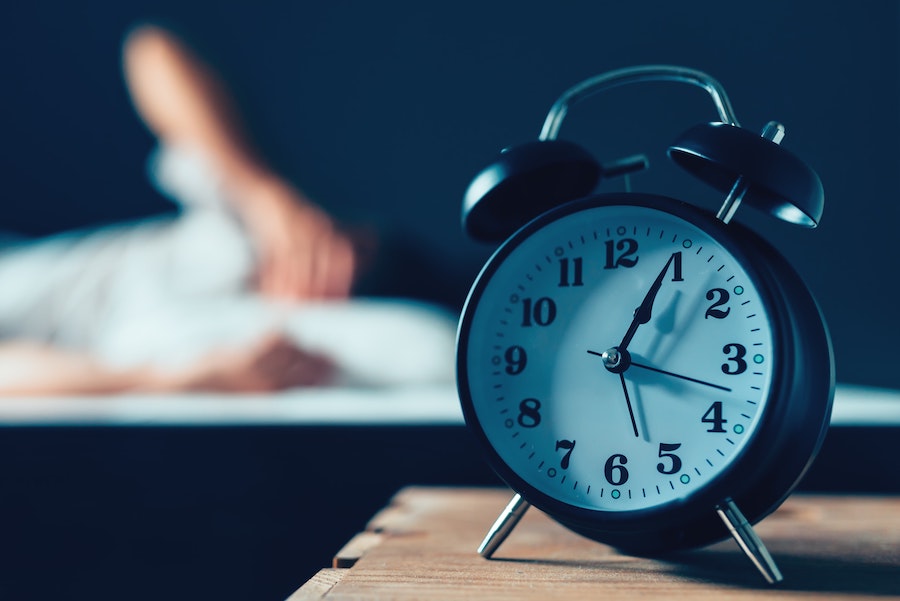Struggling to sleep? 6 ways to relieve insomnia naturally
15th March is World Sleep Day
There’s nothing more frustrating than spending a night staring at the ceiling – tossing, turning and willing sleep to come.
Between unanswered emails and unpaid bills, there’s a million and one things that can keep you awake at night, and poor sleep can have a significant impact on your mental health, mood and energy levels the next day.
If you’re regularly finding it a struggle to drift off or stay in the land of nod, take solace in the fact that you’re not alone: As many as 16 million UK adults are suffering from regular sleepless nights, with a third (31%) reporting that they have insomnia, according to a 2017 survey by Aviva.

Sleep difficulties are alarmingly common
When you’re desperate for some slumber, it’s tempting to raid the medicine cabinet for fast relief, but sleeping pills can sometimes leave you feeling worse the next day and are not generally recommended as a long-term solution for everybody.
While there’s no guaranteed cure for insomnia (and some sleep problems require a bit more help from specialists), there are some natural solutions and lifestyle changes that could help. Here, some leading health experts reveal their suggestions for making sleepless nights a thing of the past…
1. Go to bed and get up at the same time every day
It’s tempting to stay awake for ‘just one more’ episode of the latest Netflix series, but messing with your sleep pattern can seriously affect your ability to to drift off, sometimes for days to come. “Our bodies love routine and follow a circadian rhythm,” says Dr Prudence Knight, online GP at Push Doctor. “This is driven by hormone levels which vary throughout the day.”
Dr Knight explains that when our body is running on a proper sleep schedule, we’re able to get out of bed in the morning and feel alert during the day. Conversely, in the evening, sleep hormones gradually help the body to feel tired, allowing us to drop off easily at bedtime. “Go to bed and get up at the same time every day,” she advises. “This includes the weekends – and don’t nap, no matter how little sleep you’ve had. It can take several weeks for a sleep schedule to take effect, but eventually, the majority of people who try it end up with a good pattern.”
2. Cut out caffeine and go light on the booze
The festive period is synonymous with alcohol consumption. From Christmas Day fizz to office parties, the social engagements of the season can mean you drink way more than you usually would.
While we’d never begrudge anyone for getting involved in the festivities, overindulging in booze could cause your sleep to take a knock. And if you’re relying on caffeine to power you through the morning after, this could also be adding to the problem.

Go easy on the booze late at night
“If you can, try to stay away from alcohol or caffeine six hours before you go to bed, as they both can interfere with your sleeping pattern,” says Dr Kim Glass, lead GP at Bupa Health Clinics (bupa.co.uk). “Caffeine is a stimulant and the effects can stay in your systems for hours, depending on how much you have.
“Similarly, alcohol can affect the quality of your sleep, as it reduces the amount of REM (rapid eye movement) sleep you get, and this is the type of sleep which often makes you feel most rested.” Glass warns that a night of drinking can also disrupt your sleep in other ways, as you may find yourself waking in the night needing the toilet, or with a thirst.
3. Make your bedroom a device-free zone

Make your bedroom a purely-for-relaxing space
If a late-night scroll through Instagram is part of your bedtime routine, try swapping in a good book instead. “Your bedroom should be a calm place, free of stressful distractions,” says Dr Glass.
Not only can social media’s addictive nature keep you awake at night, but too much screen-time can have a sleep-suppressing effect on your brain. “Tablets and smartphones emit blue light which can boost your attention span, suppressing your body’s natural sleep hormone, and can throw out your circadian rhythm which makes for a disruptive night’s sleep,” warns Glass, who suggests leaving your device in another room. That way, you can start to properly wind down the moment you get into bed.
4. Get some aerobic exercise

Pack in a high-energy workout
If you’ve been putting off using your gym membership all year, here’s a good reason to finally get some use out of it: “Physical activity can help reduce stress and can strengthen your body clock, making it easier for you to fall asleep and have a good night’s rest,” says Dr Glass. “If you’re not normally very active, try going for a brisk walk at lunchtime – even 15 minutes can make a difference.”
Be careful not to overdo it in the evenings though, as too much exercise late at night can keep you awake, rather than putting you to sleep.
5. Eat magnesium and calcium-rich foods

Eat for better sleep
If you’re struggling to sleep, your diet could also play a key role. “There is some research that suggests that magnesium and calcium may be linked to poor sleep,” says behaviour change expert, Dr Aria. “Magnesium is involved in many processes within the body, including muscle relaxation, and low intakes have been shown to make it harder to stay asleep.”
Good food sources of magnesium include green veggies, beans, nuts, seeds and wholegrains. “You may also want to consider a magnesium supplement, as these have been shown to help aid relaxation, making them useful before you go to bed,” he adds.
Calcium could be another good sleep-booster. “Calcium helps the brain use tryptophan to make melatonin, and low intakes of calcium have also been shown to make it more difficult to fall asleep,” says Dr Aria. “Good sources include dairy foods, green vegetables and soy.”
6. Try a ‘body scan’

A guided meditation can help you to switch off
Meditation can be a handy way of slowing down those racing thoughts. A ‘body scan’ is a type of relaxation technique that helps to calm the mind and encourage sleep. It’s all about honing in on different parts of your body and resting your attention with them, to help bring you mind into the present.
“Lie down and make yourself comfortable,” says Dr Sarah Brewer, medical director of Healthspan. “Focus your mind on your toes and notice how they feel – are they relaxed or tense, hot or cold?”
Now, slowly ‘scan’ each area of your body until your reach your head. Dr Brewer says that your mind will wander at times, but this is completely natural. “Acknowledge the thoughts or worries that arise, and then gently guide your attention back to your body,” she advises. “Start by trying this exercise for five minutes and then slowly build up to 20 minutes.”
The Press Association
Latest posts by The Press Association (see all)
- World Penguin Day: Test your knowledge with our penguin-themed quiz - April 23, 2024
- Kate’s new photo of Louis released to celebrate prince’s sixth birthday - April 23, 2024
- Alan Titchmarsh: Slugs are never going to be my friends - April 23, 2024
- Prince Louis celebrates sixth birthday - April 23, 2024
- Special episode of Planet Earth III to be narrated by schoolchildren - April 22, 2024






















